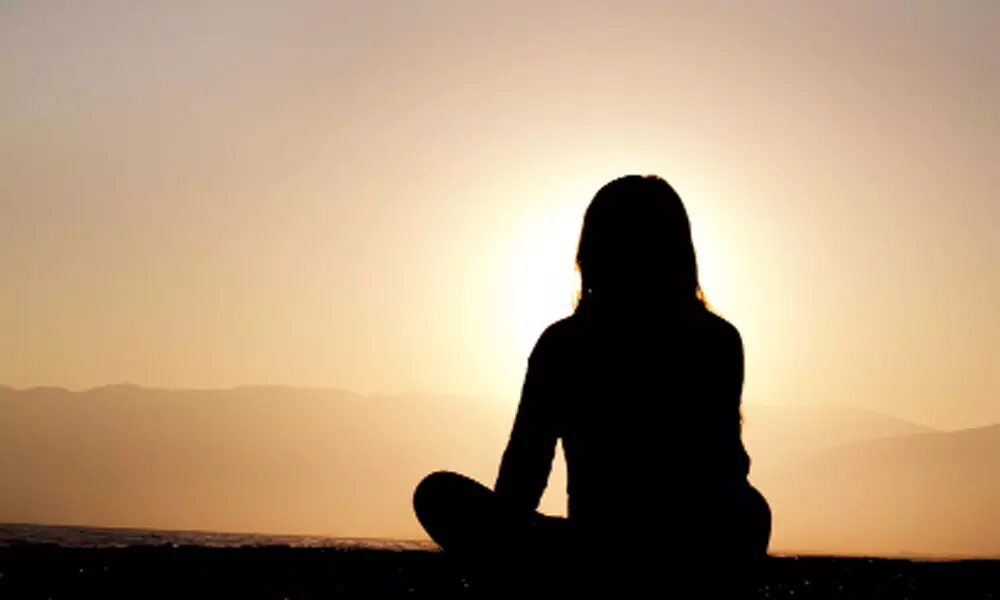The importance of looking within
EVERY new day brims with fresh challenges and in 2021, when we are up against a world battling a pandemic, these are unforeseen times which have brought unexpected trials and tribulations to us
image for illustrative purpose

EVERY new day brims with fresh challenges and in 2021, when we are up against a world battling a pandemic, these are unforeseen times which have brought unexpected trials and tribulations to us. What has not changed is the value of human resilience, which has enabled us to sail through the most difficult of circumstances.
However, in this battleground, happiness and contentment often appear elusive. Ideas and efforts inevitably fail sometimes, and personal and professional lives have their lows. Where do we look when things do not go our way? What do we do when people and projects disappoint us? The answer, to put it simply, is to look within.
Disappointments can beset our lives in several ways. A cup of tea can lack the desired punch, a friend can sometimes be unresponsive, work at the office can be unfulfilling. One way to cope is to blame externalities, and attribute our disenchantment to things outside us, things beyond our control.
This, from a long-term perspective, does not lead us to any worthy destinations. While external factors certainly impact what we do and what comes out of it, happiness, success and fulfilment are not entirely caused by them. Even when we think that a good meal makes us happy, it is we who do the thinking. Therefore, when things do not turn out the way they should, it is, we who do the thinking and notice what makes us disillusioned.
To care for oneself and to make failures and setbacks, stepping stones to achievement, we must locate responsibility within ourselves. To quote Sharon Salzberg, "Taking responsibility for oneself is by definition, an act of kindness." To be kind to ourselves and to make the most of the abilities we are endowed with, we must look within and act responsibly. If we cannot control things outside us, we are all we have, and therefore, we must master our inner selves.
The problem with a myopic perspective that makes us blame external reasons solely for debacles is that it leads us to a state of stagnation and non-reflection. The moment we construct ourselves as victims who cannot help their situation, we get rid of agency. No empowering transformation can occur in this case, because we stagnate into a state of non-action and refuse to reflect on what we did wrong and what we can do to make things better. This can lead to a string of disasters which can make bouncing back seem like impossibility.
The other route, which is about looking at ourselves and searching within our souls, makes space for empowering reflections, actions and possibilities. If we do not engage in a blame game, and critically think about our circumstances, we are likely to change them favourably. For instance, if my current equation with my colleagues is unsatisfactory, what I can do is build new bridges and try interacting in friendlier ways.
If I am not making a good bowl of pasta, I can measure what ingredients I am putting and in what quantity. Whether or not we meet desired ends, we inevitably improve when we choose this path.
A quote by Dietrich Bonhoeffer sums up the link between looking inside responsibly and acting profitably, "Action springs not from thought, but from a readiness for responsibility."
Thoughts can be of all kinds, including those that confine us to despondency and inaction. Responsibility, however, emerges out of insight that we gain when we look at ourselves without evading things that may scare us.
Once we know what we did not do right, we will know how externalities hamper our efforts and we can work towards changing them. The moment we realize that despite other people and things outside us, we are inextricably tied to what happens to us, we can spin wonders out of the most dismal situations.
Moreover, there is so much to do when we choose the emancipatory path of soul-searching and responsibility. We can keep our senses open, stay dynamic, appreciate things and people around us and cherish ourselves. Happiness, as is often said, is a state of mind. The opposites of happiness, thus, also exist in the same domain.
We must stop identifying ourselves as people who suffer defeats and setbacks but imagine ourselves as people who can make good things happen and transform our personal and professional worlds, and the world we inhabit.
Looking within ourselves goes beyond immediate gratification and success. It is a commitment to one's well-being and selfhood. The key to self-fulfilment is nearer than it seems, as all we need to do is to look inside, take responsibility for ourselves and let go of what limits us. Such a self-affirming path can not merely enliven our everyday existences but allow the most radical and empowering changes we can imagine.
(The author is founder, Upsurge Global, and Senior Advisor, Telangana State Innovation Cell)

